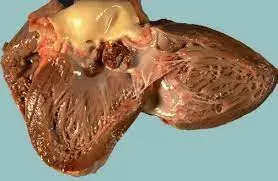- Home
- Medical news & Guidelines
- Anesthesiology
- Cardiology and CTVS
- Critical Care
- Dentistry
- Dermatology
- Diabetes and Endocrinology
- ENT
- Gastroenterology
- Medicine
- Nephrology
- Neurology
- Obstretics-Gynaecology
- Oncology
- Ophthalmology
- Orthopaedics
- Pediatrics-Neonatology
- Psychiatry
- Pulmonology
- Radiology
- Surgery
- Urology
- Laboratory Medicine
- Diet
- Nursing
- Paramedical
- Physiotherapy
- Health news
- Fact Check
- Bone Health Fact Check
- Brain Health Fact Check
- Cancer Related Fact Check
- Child Care Fact Check
- Dental and oral health fact check
- Diabetes and metabolic health fact check
- Diet and Nutrition Fact Check
- Eye and ENT Care Fact Check
- Fitness fact check
- Gut health fact check
- Heart health fact check
- Kidney health fact check
- Medical education fact check
- Men's health fact check
- Respiratory fact check
- Skin and hair care fact check
- Vaccine and Immunization fact check
- Women's health fact check
- AYUSH
- State News
- Andaman and Nicobar Islands
- Andhra Pradesh
- Arunachal Pradesh
- Assam
- Bihar
- Chandigarh
- Chattisgarh
- Dadra and Nagar Haveli
- Daman and Diu
- Delhi
- Goa
- Gujarat
- Haryana
- Himachal Pradesh
- Jammu & Kashmir
- Jharkhand
- Karnataka
- Kerala
- Ladakh
- Lakshadweep
- Madhya Pradesh
- Maharashtra
- Manipur
- Meghalaya
- Mizoram
- Nagaland
- Odisha
- Puducherry
- Punjab
- Rajasthan
- Sikkim
- Tamil Nadu
- Telangana
- Tripura
- Uttar Pradesh
- Uttrakhand
- West Bengal
- Medical Education
- Industry
Cardiac surgery within 30 days in infective endocarditis with ICH linked to neurological deterioration

Cardiac surgery within 30 days in infective endocarditis with intracranial haemorrhage was not associated with higher mortality, but with an increased rate of neurological deterioration according to a recent study published in the Journal of the American Heart Association.
Intracranial haemorrhage (ICH) is one of the main causes of lack of surgery in patients with infective endocarditis (IE), despite the presence of surgical indications. They aimed to evaluate the impact of early surgery in patients with infective endocarditis (IE) and with Intracranial haemorrhage (ICH) on postoperative neurological deterioration and all‐cause mortality and to elucidate the risk of 30‐day mortality in patients who were denied surgery.
Three libraries (MEDLINE, EMBASE, and Cochrane Library) were assessed. The primary outcome was all‐cause mortality, and the secondary outcome was neurological deterioration. The inverse variance method and random model were performed.
The results of the study are:
They identified 16 studies including 355 patients. Nine studies examined the impact of surgical timing (early versus late) and were included in the meta‐analysis. Only one study examined the fate of patients with IE and with ICH who were treated conservatively despite having an indication for cardiac surgery, showing higher mortality rates than those who underwent surgery (11.8% versus 2.5%). We found no significant association between early surgery, regardless of its definition, and higher mortality (odds ratio [OR], 1.69; 95% CI, 0.95–3.02). Early surgery was associated with a higher risk for neurological deterioration (OR, 2.00; 95% CI, 1.10–3.65).
Thus, cardiac surgery for infective endocarditis (IE) within 30 days of Intracranial haemorrhage (ICH) was not associated with higher mortality, but with an increased rate of neurological deterioration. The 30‐day mortality in patients with infective endocarditis (IE) and with Intracranial haemorrhage (ICH) who were denied surgery has not yet been sufficiently investigated. This patient group should be analyzed in future studies in more detail.
Reference:
Surgical Timing in Patients with Infective Endocarditis and With Intracranial Hemorrhage: A Systematic Review and Meta‐Analysis by Rita Musleh et al. published in the Journal of the American Heart Association.
https://doi.org/10.1161/JAHA.121.024401
Dr. Shravani Dali has completed her BDS from Pravara institute of medical sciences, loni. Following which she extensively worked in the healthcare sector for 2+ years. She has been actively involved in writing blogs in field of health and wellness. Currently she is pursuing her Masters of public health-health administration from Tata institute of social sciences. She can be contacted at editorial@medicaldialogues.in.
Dr Kamal Kant Kohli-MBBS, DTCD- a chest specialist with more than 30 years of practice and a flair for writing clinical articles, Dr Kamal Kant Kohli joined Medical Dialogues as a Chief Editor of Medical News. Besides writing articles, as an editor, he proofreads and verifies all the medical content published on Medical Dialogues including those coming from journals, studies,medical conferences,guidelines etc. Email: drkohli@medicaldialogues.in. Contact no. 011-43720751


